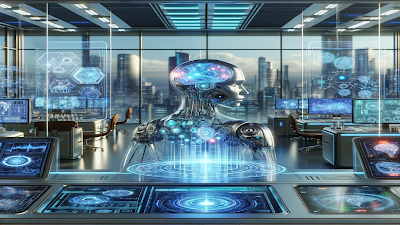Revolutionizing Banking with AI: Large Bank CEOs Take a Customer-First Approach #banking #banks #innovation #technology #ceo #finance #chatbots #virtualassistants #frauddetection #loanapproval

Artificial Intelligence (AI) has emerged as a transformative technology across various industries, and banking is no exception. In the context of banking, AI refers to the use of advanced algorithms and machine learning techniques to automate processes, analyze data, and make intelligent decisions. This technology has the potential to revolutionize the way banks operate by enhancing customer experience, improving efficiency, and mitigating risks. The importance of AI in banking cannot be overstated. With increasing competition and evolving customer expectations, banks need to adopt innovative solutions that can provide personalized services while ensuring security and compliance. AI offers a unique opportunity for banks to achieve these objectives by leveraging vast amounts of data to gain insights into customer behavior, automate routine tasks, detect frauds more effectively, and make accurate credit assessments. In this blog post, we will explore how AI is transforming the banking in...